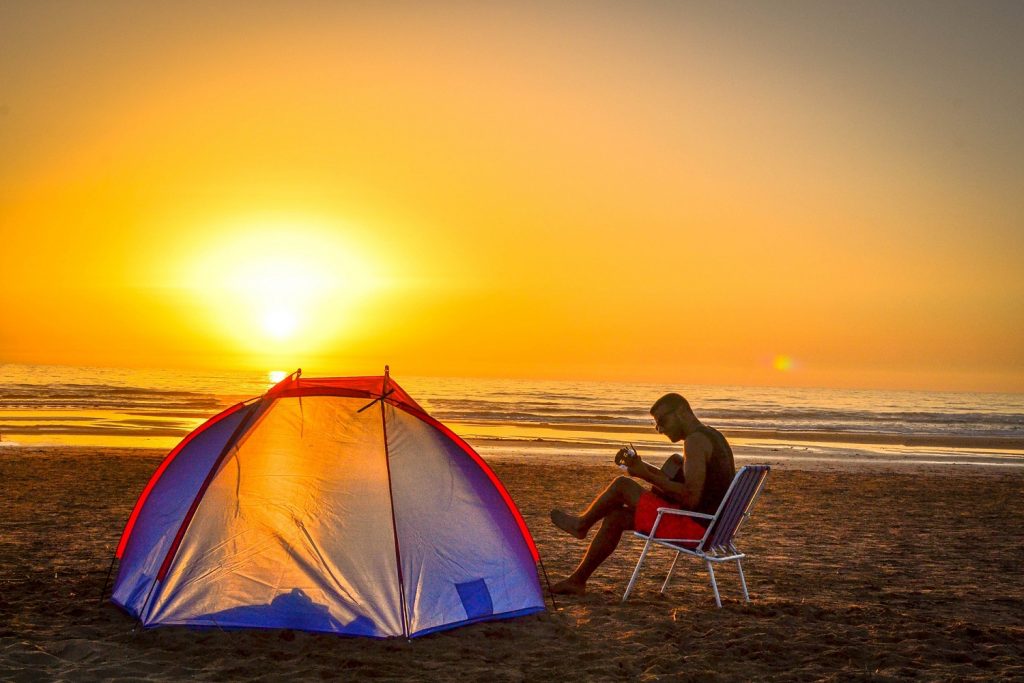
The more weight you can cut from your pack, the faster you move, and the more comfortable your camping experience will be. However, switching to lighter setup can cost an arm and a leg. So here are 5 tips for ultralight camping that can shave weight from your pack without making it too costly.
1. Minimize The Stove
Food is one of the easiest things to over pack. It is thus necessary to lay out your foods in a strategic way. And the first thing to notice is the stove.
The most ideal option is just to leave the stove at home and eat cold foods instead. Oatmeal, nuts, cereal, dried fruits, sandwiches are good choices.
And before you start your trip, list out the foods you will need for each day to make sure that you will not bring too much of the unnecessary.
In case you are not ready to leave the fire behind, you can make a mini alcohol stove from a soda can. This stove can also keep you warm and cook some simple dishes.
2. Use Multi-purpose Items
There are many items that can be used for more than one purpose. For examples, you can use your stuff sack as a pillow cover, cooking pot as a bowl, or sleeping bag as a makeshift stretcher.
Besides the shift toward using multiple-purpose items, it is also weight-saving to cut off the non-essentials. Coffee mug and wine cup are the examples. And after each trip, you can eliminate the items with less frequency or with no actual use.
That said, first aids and emergency kits should never be put on the elimination list.
3. Go Lightweight On The Big Three
The three keywords are the tent, sleeping bag, and backpack. For most campers, they always make up for most of the base weight.
– Tent: There are two factors when it comes to using tents – the number of people and weather. If you go solo, a one-man tent is just a perfect fit. And if you have a companion, two-person tents may weight around 2-3 pounds depending on its design and materials.
Depending on whether it is warm or rainy, you can also opt for the suitable tent to minimize the pack weight.
– Sleeping bag: It is ideal to keep the sleeping bag under 3 pounds and the sleeping pad around 1 pound. These numbers are also flexible depending on weather condition.
– Backpack: People usually forget that even an empty pack weights something. So the tip here is that you should go for packs with smaller loads. It forces you to carry less but just the essentials.
4. Select Smart Materials
Titanium and synthetic layers are two great option for the materials. Before deciding to include anything in your pack, make sure it is lightweight, easy to clean and dry.
Using backpacking solar charger is also a smart choice. It frees you from having to worry about finding electricity when you want to charge your stuff.
5. Put Everything On A Scale
Weight is everything. There is two way to do this. You can either put your pack on a scale or make a spreadsheet listing out all items’ weights to see if your pack is lightweight enough.
You can group your items into different categories such as Shelter, Sleeping, Foods, and Clothes. This spreadsheet may take you quite a while to complete, yet it is definitely worth your time and effort.
It helps a lot in deciding whether anything else can be eliminated for a lighter pack. Choosing the items for your pack is like choosing the players in a football game. There are always limited spots in the team and as a coach, you need a make ruthless decision when picking which players to cut and which to add.
The Bottom Line
Your love for camping will be put off by the aches after carrying a heavy pack on your back for hours. The ultralight pack is then crucial to boosting your comfort and camping experience.
So here are the key takeaways for a lighter camping setup: Plan your foods strategically, take advantage of multiple-use gears, minimize the weight of the tent, sleeping bag, backpack, scrutinize on the items, and eliminate the nonessentials.
I hope these 5 tips for ultralight camping are useful for your campaign prep work. Thank you so much for reading.
Author Bio:
Luna is a camping and hiking enthusiast from Phoenix, Arizona. She wants to share her experience to all adventure junkies in order for them to get better preparations before any trip. Visit her blog to find out more!
